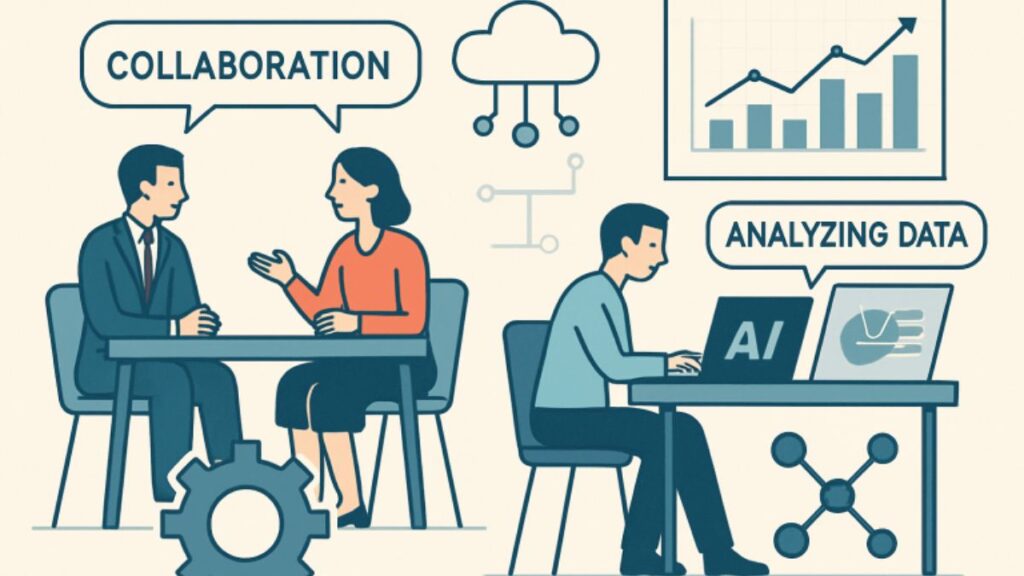Artificial Intelligence (AI) is no longer a futuristic technology—it’s an operational imperative for businesses across every sector. The rapid adoption of enterprise AI is setting new standards for innovation, agility, and problem-solving. From predictive analytics to automation and advanced cyber protection, AI is building a competitive advantage that’s increasingly essential for growth and resilience.
Enterprises that leverage AI in their workflows are witnessing significant improvements in decision quality, productivity, and customer experiences. As AI systems become more sophisticated and accessible, companies both large and small are integrating these capabilities to stay ahead amid evolving industry demands. The strategic implementation of AI creates not just operational efficiency, but also enables entirely new ways to interact with customers and manage risk.
This widespread transformation is powered by advances in machine learning, natural language processing, and computer vision, making AI flexible enough to address sector-specific needs. The resulting automation reduces manual workloads, speeds up processes, and uncovers deeper insights within complex organizational data. The shift to AI-driven operations enables enterprises to deliver personalized offerings at scale, thereby strengthening their competitive edge in today’s digital economy.
Understanding the potential and the challenges of AI adoption helps leaders harness its actual value. Responsible implementation must address ethical, societal, and regulatory considerations—making governance, transparency, and accountability central pillars in the journey toward AI maturity. External partnerships and responsible investments in AI technology also play a pivotal role in unlocking widespread impact.
AI Integration in Enterprise Operations
AI is increasingly central to enterprise operations, unlocking efficiency and transforming traditional workflows. In recent years, almost half of Fortune 1000 companies have fully embedded AI into their core processes. These systems can automate everything from supply chain dynamics to personalized customer engagement and predictive maintenance. The result is not just cost savings, but also accelerated innovation cycles, the ability to adapt quickly to change, and improved employee satisfaction through the automation of repetitive tasks.
Integrating AI is particularly impactful for sectors such as retail, healthcare, and manufacturing, where real-time analytics and automated recommendations streamline decision-making processes. Leaders are leveraging AI-powered data insights to forecast market demands, personalize services, and optimize resources. According to a Forbes technology analysis, such enterprise-wide adoption is expected to expand further as AI capabilities mature.
Agentic AI in Cybersecurity
Security threats are becoming more sophisticated than ever, driving a shift toward agentic AI—AI systems capable of making independent decisions and taking actions beyond the confines of rigid programming. Unlike conventional automation, agentic AI learns from its environment, adapts to evolving risks, and operates autonomously to detect and remediate threats in real time. Research forecasts that by 2028, one in three enterprise applications will rely on agentic AI mechanisms, significantly reshaping cybersecurity practices.
This paradigm enables enterprises to respond proactively to threats and mitigate risks before they escalate, minimizing potential business and reputational harm. Organizations utilizing agentic AI experience faster incident detection, more accurate threat classification, and lower labor costs. This marks a shift toward self-healing security ecosystems that can defend networks and assets with minimal human intervention—an increasingly necessary model as cyber threats continue to multiply and evolve.
Significant Investments in AI
Enterprises are making record-high investments in AI, with technology consultancies and global corporations forging strategic alliances to harness AI’s full potential. For example, KPMG’s $100 million partnership with Google Cloud aims to embed advanced machine learning and generative AI solutions into its enterprise toolkit, which is expected to catalyze industry-specific innovation.
These investments signal confidence in both the short-term productivity gains and the long-term transformation that comes from AI integration. Organizations prioritizing AI adoption often position themselves as industry leaders, attracting top talent and fostering an environment of continuous innovation. The Wall Street Journal highlights how increased capital spending on cloud and AI infrastructure is reshaping the way businesses approach everything from finance to product development.
Open-Source AI and Collaboration
Open-source AI platforms are actively democratizing the field, empowering developers and organizations with access to powerful machine learning tools, codebases, and datasets. By fostering an open ecosystem, innovation is accelerated and collective expertise is harnessed. Collaboration on open-source projects has already led to breakthroughs in fields like natural language processing and visual recognition, further enabling the rapid prototyping of tailored enterprise solutions.
This movement is breaking down entry barriers, allowing startups and smaller organizations to adopt and contribute to state-of-the-art AI solutions. Alongside lowering the cost of entry, open-source collaboration enhances transparency and fosters trust within the broader business and academic communities, thereby creating a thriving landscape for continued AI advancement.
Ethical Considerations in AI Adoption
As AI technologies become pervasive in enterprise systems, attention to ethics, fairness, and governance grows more urgent. Responsible AI development starts with unbiased algorithms and extends to explainability, transparency, and robust data privacy practices. Enterprises are increasingly introducing ethical frameworks to oversee every stage of AI deployment, prioritizing human oversight and compliance with evolving regulatory standards.
Embedding ethical considerations into AI lifecycles not only guards against bias and discrimination but also ensures long-term reliability and user trust. Organizations that prioritize responsible AI adoption are better positioned to navigate societal concerns and regulatory scrutiny—making ethics a cornerstone of sustainable digital transformation.
The Future of Enterprise AI
The future enterprise landscape will be defined by AI systems that generate real-world impact rather than simply showcasing technical prowess. Composable AI platforms provide modular, plug-and-play capabilities, enabling organizations to innovate rapidly and avoid vendor lock-in. This agility will be vital as trust, safety, and governance considerations rise to the level of executive management.
As questions surrounding AI trust, security, and sovereignty become central to business strategy, the era of experimentation is evolving into an age of measured, mission-critical AI integration. The most successful enterprises of the future will be those that strategically balance innovation with responsible governance, ensuring AI becomes a force for good, growth, and resilience.
Artificial Intelligence is fundamentally reshaping how enterprises operate. By investing thoughtfully, collaborating openly, and adhering to robust ethical standards, organizations can harness AI’s full potential while safeguarding their reputation and long-term future. For a deeper look at the business impact of AI technologies, visit the Harvard Business Review’s analysis on AI-driven business transformation.






